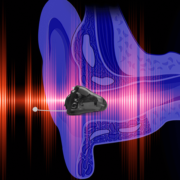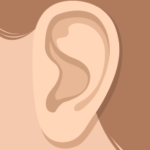Hearing Aids + Your Brain
You won’t “mind” this news about better hearing and improved cognition!
Does hearing aid use help your brain? A growing amount of research associates hearing technology with improved cognition and slowed or decreased risk of cognitive decline. Get the latest on research that supports your better-hearing health — and your mind.
Have you heard? Yet another study links hearing aid use to reduced risk of cognitive decline!
We’ve long talked about connections between hearing and the brain. They work together to help keep you empowered and engaged, so it’s no wonder that hearing difficulties could go hand in hand with cognitive problems.
The good news? An increasing volume of research links hearing loss treatment to improved brain function or reduced risk of cognitive impairment.
A University of Melbourne study published in early 2020, for example, suggests that “more frequent use of hearing aids was associated with greater improvements in cognitive function,” per a university news release.
Investigators, whose study assessed nearly 100 hearing-impaired adults aged 62 to 82 before and after an 18-month period of hearing aid use, also discovered substantial improvement in “speech perception, self-reported listening disability and quality of life.”
“Most notably,” according to the release, “97.3 percent of participants in this study showed either clinically significant improvement or stability in executive function — their mental ability to plan, organise information and initiate tasks.”
The conclusions dovetail with other various studies over the years whose data suggest, respectively, that with hearing aid use:
- Age-related cognitive decline may slow as much as 75%
- Odds of depression may be lower
- Risk of a dementia diagnosis — within three years of being diagnosed with hearing loss — may drop 18%
- Adults perceive improvements in mental health and quality of life














Leave a Reply
Want to join the discussion?Feel free to contribute!